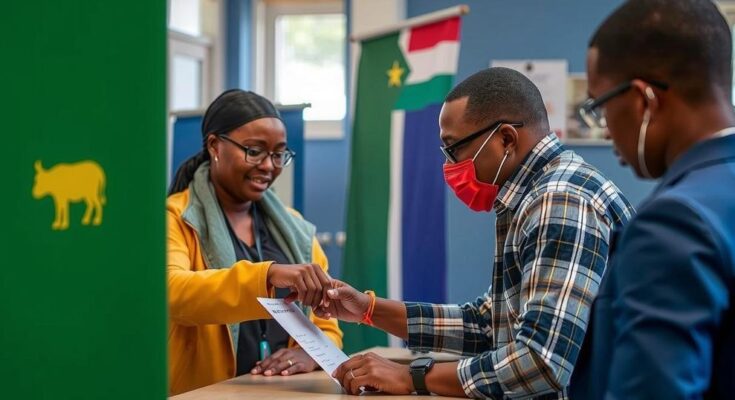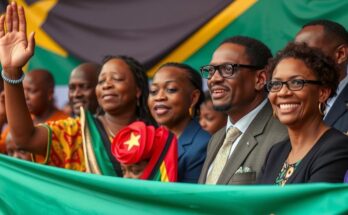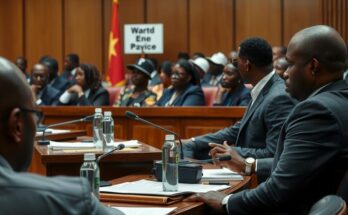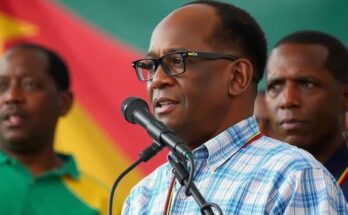Namibia has extended election voting due to ballot shortages and technical issues, prompting opposition claims of electoral fraud. The extension has led to long lines at polling stations, and many voters still await ballot deliveries. Concerns grow over the electoral integrity amidst economic frustrations among the youth, while Vice President Nandi-Ndaitwah seeks to become the country’s first female leader. this crisis mirrors unrest in Mozambique following disputed elections.
Namibia’s electoral agency has announced an extension of voting for the presidential and parliamentary elections, citing a shortage of ballot papers and technical issues at polling stations. Originally scheduled to close on Wednesday, many polling stations will now remain open until Saturday evening to accommodate voters. This decision has prompted complaints from the opposition Independent Patriots for Change party, which alleges that the extension is illegal and indicative of electoral misconduct. Delays have led to long lines at many locations, with reports of rural polling stations still awaiting critical ballot deliveries. Amidst these setbacks, concerns have intensified regarding the integrity of the electoral process, paralleling recent unrest in neighboring Mozambique due to allegations of vote-rigging in their elections. As the nation awaits the final outcome, Vice President Netumbo Nandi-Ndaitwah’s potential historic candidacy as the first female leader remains in focus, amid mounting public discontent over economic inequality and job scarcity in a nation rich in mineral resources. With approximately 1.4 million registered voters, the electoral agency’s handling of the situation will be crucial in maintaining Namibia’s reputation as a stable democracy in a region often plagued by political turmoil.
Namibia, having gained independence from South African rule in 1990, has been governed by the SWAPO party, which played a key role in the nation’s liberation. Historically regarded as a stable democracy, Namibia’s recent election issues, particularly related to logistical problems and allegations of fraud, threaten to undermine this reputation. The country’s struggle with economic inequality persists despite its categorization as an upper middle-income nation by the World Bank, leading to frustrations particularly among its youth. Current events evoke comparisons to unrest in Mozambique, where similar allegations of electoral fraud have ignited protests, highlighting a broader trend of disillusionment with longstanding political powers in southern Africa.
The decision by Namibia’s electoral agency to extend voting due to technical challenges has sparked significant controversy, including allegations from the main opposition party regarding the legality of the actions taken. Voter dissatisfaction emerges from logistical problems at polling stations, paralleling discontent observed in regional electoral scenarios. With the outcomes of these elections potentially shaping Namibia’s future leadership and governance, the implications of this electoral process may resonate deeply within the country’s socio-political landscape, particularly among its younger citizens.
Original Source: abcnews.go.com




